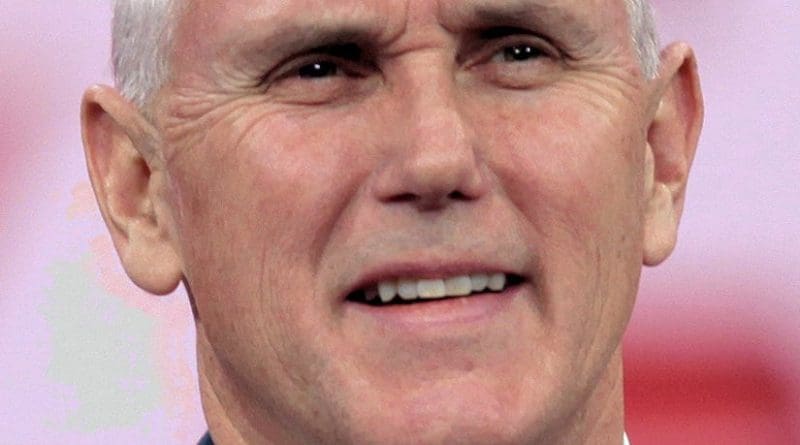VP Debate A Big Plus For Trump – OpEd
The US vice-presidential debate was a big plus for the campaign of Republican candidate Donald Trump, who is widely considered a loser in the initial presidential debate. Trump’s running mate, the Indiana Governor Mike Pence clearly outperformed his rival, Virginia Senator Tim Kaine, whose impulsive constant interruptions seriously undermined his performance and his image on national television.
By projecting a calm, confident, and well-informed conservative stance on various domestic and foreign issues, Pence scored big with the American viewers, many of whom are unsure of Trump’s ability to act presidential given his much-criticized temper. Although Kaine pressed hard on Trump’s various incendiary statements, Pence performed admirably by fending off those criticisms and assuring the republican voters in particular that his ticket had a robust position that elevated the much-needed certainty regarding Trump’s candidacy.
Not only that, Pence was convincing on casting questions on Clinton’s “pay for play” scandal with the Clinton Foundation and the unhappy results with the “Russia reset” policy of the Obama administration that is in pieces today. A clear winner on the issue of style, Pence definitely appeared more “vice-presidential” than Kaine, whose dozens of interruptions of Pence cost him dearly with the viewers.
In all likelihood, Pence’s commanding performance will put a mini-brake on the downward slide of Trump in the recent weeks, turning the needle of voter sympathy toward Trump some. Pence’s ability to put up a rational discourse, perfectly logical from a conservative stand point, was a timely antidote to the Clinton-driven Trump-bashing successes that have resulted in the recent polls putting Clinton ahead by a comfortable margin.
Also, on foreign policy, Pence articulated a sound criticism of Obama-Clinton’s complicity in the Iraqi vacuum that led to ISIS’s rise, without ever receiving even a half-convincing rebuttal by Kaine, whose comforting assurances about American being more secure today is probably viewed with skepticism by many Americans.
With all the talks of “facts-checks” after the debate, what matters most about this VP debate is less whether or not Pence’s denial of some statements attributed to him, e.g., on Russian President Putin, holds but rather the public perception of a likeable and trustworthy republican candidate with long prior record in US Congress, who was able to project the image of a seasoned, mild-mannered, legitimate politician who met the basic criteria of the status quo.
Pence repeatedly criticized Putin and blamed Clinton and Obama for Russia’s resurgence, thus putting to rest the concerns of many Americans that the Trump presidency would stand up to Putin. Much like other republican politicians, Pence drove home the point about the American strength and revitalizing the US military, avoiding any amateurish hawkish missteps that Trump is famous for.
Boosted by Pence’s outperforming Kaine, Trump now faces the challenge of the next debate on Sunday, which is formatted as a town meeting, potentially benefiting the populistic Trump, who is more comfortable in “street politics” than podium debate.
Should Trump be able to provide more convincing answers on the issue of his tax returns, then it is perfectly possible to see a more perceptible move of the voter needle in his direction. But, Trump may also prove his own worst enemy by targeting Bill Clinton and raising the issues not germinal to this year’s elections. A more issue-oriented Trump can compensate for the flaws of the first debate, which was log-sided by a pro-Clinton moderator, who essentially gave her a pass by failing to ask Clinton any tough or troubling questions. Pence’s ability to withstand the Kaine’s provocations to lose his cool is a precious lesson for Trump that must be taken to heart by Trump if he wants better results than the first debate.

